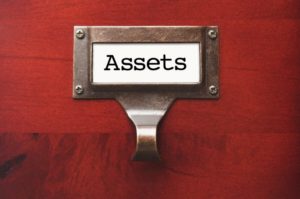A is for Assets

Make me a list of your assets, I say.
But I don’t have any assets, you say.
It’s a common misunderstanding that assets must have a high value. Assets are simply all the property that you have and includes every form of property not only real estate (the house, condo, vacant lot, commercial building and/or apartment building). All forms of assets must be disclosed if you file for bankruptcy.
Some of the most common assets that people have include:
|
|
|
Assets that someone is holding for you and assets that are out of the country are all listed. There is even a place to disclose assets that belong to someone else that you are holding for them.
Assets are more than stocks and investments
Assets include future rights such as potential income tax refunds. Assets also include intangible things such as business goodwill, the right to sue someone, or stock options. All assets must be disclosed on the bankruptcy schedules and exemptions remove the exempt assets from property of the bankruptcy estate.
For bankruptcy purposes, it is better to err on the side of disclosing more than less. If an asset is listed and the trustee chooses not to sell it, you can keep it. If it wasn’t disclosed, the trustee can still come back years later and sell it to satisfy your creditors. The general rule is list it or lose it.
Other Lawyers in the Alphabet Game:
- Abandonment by New York Lawyer, Jay S. Fleischman
- Address by Tuscaloosa and Birmingham Lawyer, Melinda Murphy Dionne
- Alimony by Philadelphia Suburban Lawyer, Chris Carr
- Assume by Northern California Lawyer, Cathy Moran
- Assumption by Los Angeles Lawyer, Mark J. Markus
- Assumptions by Newnan, Georgia Lawyer, Rick Palmer
- Attachment by Vermont-New Hampshire Lawyer, Michelle Kainen
- Automatic Stay by Houston Attorneys, Busby & Associates
- Automobiles by Colorado Springs Lawyer Bob Doig
- Avoidance by Ormond Beach Attorney, Lewis Roberts
Guide to Eliminating Debt
Through Bankruptcy for
California Consumers.